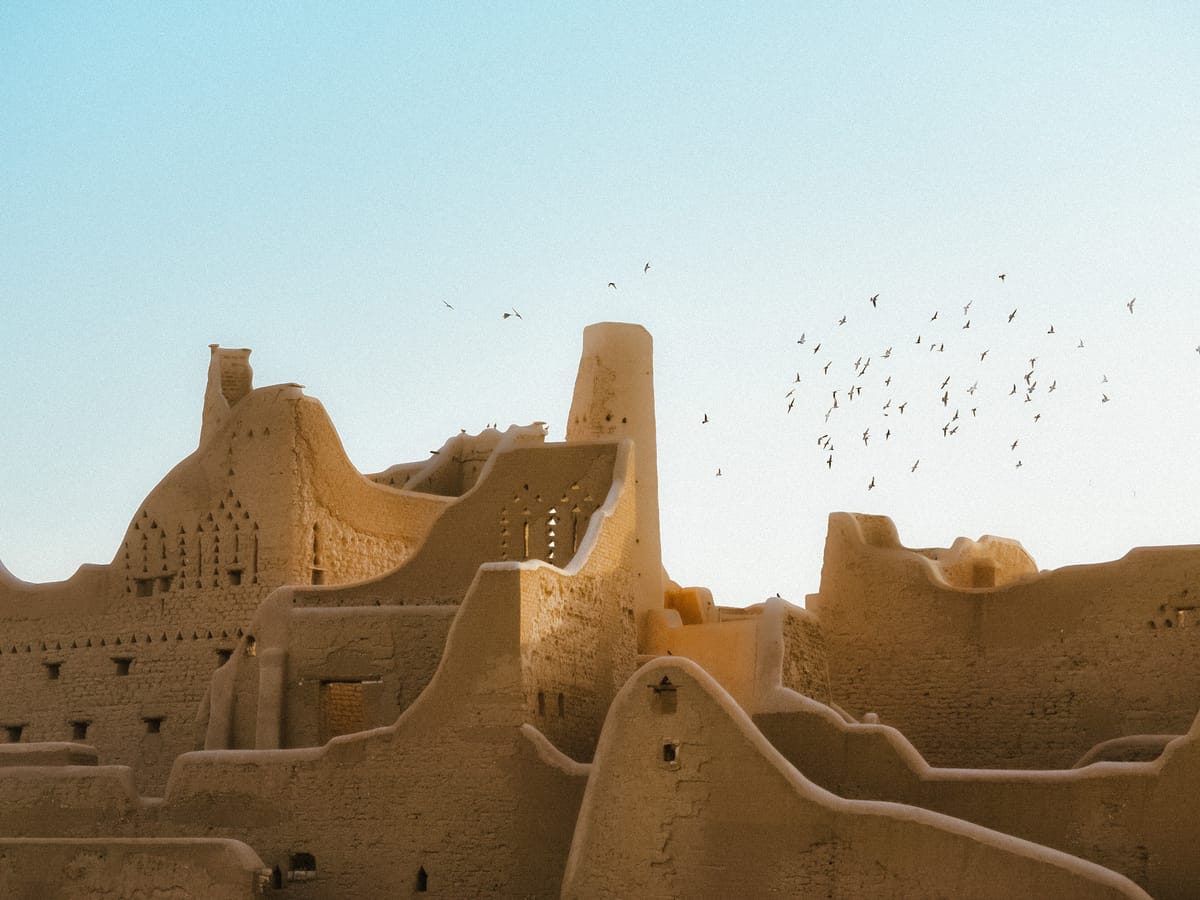The Importance of Cultural Aspects in Marketing Destinations in Saudi Arabia
Discover the importance of cultural aspects in destination marketing in Saudi Arabia, exploring heritage sites, festivals, traditional foods, and local customs that enhance the tourist experience.

Saudi Arabia's rich cultural heritage and unique traditions present a compelling narrative for marketing its tourism destinations. Incorporating cultural elements into the marketing strategy not only enhances the authenticity of the experiences offered but also ensures that tourists have a respectful and immersive visit. Here are key aspects and examples of how cultural elements are integrated into the marketing of Saudi Arabian destinations:
Introduction
Saudi Arabia is leveraging its rich cultural heritage to attract tourists, aligning with its Vision 2030 initiative to diversify the economy and reduce dependency on oil. The introduction of tourist visas in 2019 marked a significant shift, opening the doors to international leisure travelers and emphasizing the country's cultural and historical offerings.
1. Authentic Experiences
Saudi Arabia offers a variety of authentic cultural experiences that appeal to international visitors:
- Al Ula: Home to the UNESCO World Heritage Site of Hegra, Al Ula allows visitors to explore ancient Nabatean tombs and rock art dating back thousands of years. This site highlights the historical depth and cultural significance of the region.
- Riyadh's Diriyah: The historic town of Diriyah near Riyadh is known for its mudbrick architecture and as the birthplace of the Saudi state. This destination provides an immersive experience into traditional Najdi culture, reflecting Saudi Arabia's roots and heritage.
- Jeddah's Al-Balad: The historical area of Al-Balad in Jeddah features traditional Hijazi architecture, bustling markets (souks), and historical houses. It showcases the cultural and commercial history of this Red Sea trading city.
2. Cultural Sensitivity
Understanding and respecting local customs are crucial for a positive visitor experience:
- Dress Codes: Tourists are advised to wear modest clothing that covers shoulders and knees. Women visitors are encouraged to wear an abaya, a traditional long cloak, while men should avoid shorts in public places.
- Ramadan Practices: During the holy month of Ramadan, marketing campaigns highlight the importance of fasting and the cultural practices surrounding Iftar and Suhoor. Educating tourists on these customs ensures respectful observance and enhances their cultural experience.
- Gender Separation: Many public places, such as restaurants and cafes, have separate sections for families and single men. Promoting these norms ensures visitors are aware and respectful of local customs, avoiding cultural misunderstandings.
3. Hospitality
Saudi hospitality is world-renowned, and highlighting this aspect can attract more visitors:
- Home Invitations: Saudi hospitality often includes inviting guests into homes for a meal. Tourists can experience this through homestay programs where they learn about local customs and enjoy traditional meals like Kabsa and Mandi.
- Festivals and Events: Events like the Janadriyah Festival and the Red Sea International Film Festival offer immersive cultural experiences, showcasing Saudi Arabia's history, crafts, and traditional dances. These festivals provide authentic cultural experiences to visitors.
- Guided Tours: Companies like 88 Destinations offer culturally immersive tours that include visits to local homes, participation in traditional coffee ceremonies, and interactions with local artisans to understand their crafts and lifestyles.
4. Cultural Tourism Initiatives
Saudi Arabia is implementing various initiatives to promote cultural tourism:
- Cultural Heritage Tours: Tour operators like 88 Destinations offer tours focusing on the cultural heritage of Saudi Arabia, such as visiting ancient rock carvings at Jubbah and historical sites in Tabuk.
- Interactive Experiences: The Saudi Seasons initiative includes cultural events throughout the year, such as Riyadh Season, which features concerts, art exhibitions, and traditional performances. These events are marketed as opportunities to experience the vibrant culture of Saudi Arabia.
- Community-Based Tourism: Efforts to involve local communities in tourism initiatives ensure visitors get authentic experiences while benefiting the local economy. For example, guided tours in the Asir region often include visits to traditional villages and interactions with the local community.
Personal Brands Visiting Saudi Arabia
Visits from well-known personal brands help promote Saudi Arabia as a vibrant and culturally rich tourist destination:
- Anthony Joshua: The British heavyweight boxing champion visited Saudi Arabia in 2019 for his fight against Andy Ruiz Jr. at the Diriyah Arena. This event showcased Saudi Arabia's capability to host international sporting events.
- Mariah Carey: The American pop star performed in Saudi Arabia in 2019, marking one of the first performances by a female international artist in the country. Her visit was part of Saudi Arabia's efforts to promote cultural tourism and diversify its entertainment offerings.
- Lionel Messi: The Argentine football star visited Saudi Arabia in 2022 as part of his role as the country’s tourism ambassador. Messi’s visits and promotional activities helped boost Saudi Arabia's image as an emerging tourist destination and showcased its cultural and historical landmarks.
- Will Smith: The Hollywood actor and musician visited Saudi Arabia in 2018, participating in cultural events and sharing his experiences on social media, providing global visibility to Saudi Arabia's cultural heritage and tourism potential.
- Usher: The American singer visited Riyadh in 2020 to perform at the Diriyah Music Festival, enhancing Saudi Arabia’s cultural tourism appeal
- Guy Fieri: The American celebrity chef visited Saudi Arabia in 2022 to explore the country's culinary scene, highlighting Saudi Arabia's diverse food culture and promoting its culinary tourism.
Conclusion
By integrating cultural elements and leveraging the visits of personal brands, Saudi Arabia can offer unique and enriching experiences that attract and satisfy international tourists while fostering respect and appreciation for its rich cultural heritage.




